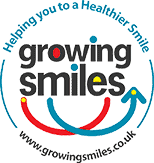* We are working on this page. Please call back or if you have a query contact us info@growingsmiles.co.uk
Most Common Diseases & Conditions:
Tooth decay (dental caries)
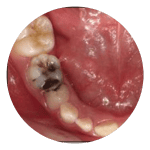
Bleeding gums (gingivitis)
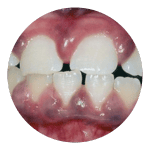
Tooth wear (erosion, attrition)
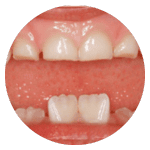
Major Risk Factors Which Contribute to Problems:
- Diet – sugar containing food and drink
- Poor oral hygiene
- Low or no fluoride
- Starting to use tobacco and/or alcohol
Everyone in this Age Group Should Aim for:
- Eat a healthy diet
- Practice good oral hygiene
- Use fluoride toothpaste
- Spit out after brushing but don’t rinse
- Avoid/stop tobacco
- Avoid alcohol
- Regular dental care
PHE Delivering Better Oral Health 2021
A lot of life changes occur around 7 and 13 years. Pre teen hormones, changing schools, friendships/peer pressure, independence afterschool activities, sport etc. All these things have a relationship to oral health and wellbeing.
- Inside the mouth – Baby Teeth Still Matter, Mixed dentition – little teeth, big teeth and straight teeth. Colour, shape and size of teeth – white spots, chalky teeth and tooth surface flaws. Gums and ulcers. Bacteria, plaque biofilm, cavities, gum health and tooth wear (erosion, attrition).
- Lifestyle, Health and Wellbeing – General health. Medicines and supplements. Trauma. Dummy/Thumb Sucking. Pre-puberty and hormones. Mental health and wellbeing. (Smoking, Vaping, Alcohol, Drugs)
- Oral hygiene – Toothbrushing – what to use, when and how. Adult support. Power v manual toothbrushes. Toothpaste – fluoride. Cleaning between teeth – when to start and what to use. Extra protection. Making plaque seen to help clean – disclosing.
- Diet and Nutrition – Healthy diet for oral and overall health. Mealtimes. Grazing. Snacks and Drinks, Fussy eaters. Allergies. Sugar – choices and swaps.
- Professional dental care – Monitoring developing teeth and jaws. Access, frequency, treatment and special care. Preventive care. Anxiety and dental treatment.
Inside the mouth
Mouths Matters
Oral Environment
- Baby Teeth Still Matter
Mixed dentition – little teeth and big teeth. Baby Teeth Still Matter. During this time baby teeth are replaced by permanent teeth. It is a time of great change in the mouth. As the permanent teeth erupt into the mouth the roots of the baby teeth shrink and eventually the baby tooth falls out. Often its not a straightforward upgrade. Sometimes baby teeth don’t fall out before the permanent tooth erupts which can make cleaning difficult. Lift the lip and have a look. Children/pre teens are likely to struggle to clean thoroughly at this time. Adults need to help with oral hygiene to prevent gum inflammation and cavities in the permanent tooth due to food and bacteria gathering around the area.
Tooth colour – you may notice as the permanent teeth erupt they look yellow and not as sparkly white as baby teeth. When you see baby and permanent teeth side by side they often look different colours. This is quite normal and is because
Lifestyle, Health and Wellbeing – Medicines and supplements, Trauma, Dummy/Thumb Sucking, Tooth Decay, Gum health, Grinding and tooth wear, Chalky teeth, Pre-puberty
Lifestyle, Health and Wellbeing
- Dummy/Thumb Sucking
- Tooth Decay
- Gum health – no matter age healthy gums matter. Daily, effective oral hygiene is key.
- Grinding and tooth wear
- Hypomineralistaion – chalky teeth
- Medicines and supplements
- Trauma – Accidents happen. Do you know what to do if a child has a tooth knocked out or gets a tooth broken? Visit Dental trauma UK
- Pre-puberty
Oral hygiene – Toothbrushing. When, What to use, How to and Adult Supervision, Extra protection
Twice a day at least.
Use a a pea sized blob of fluoride toothpaste with 1350- 1500ppm fluoride.
Use a manual or rechargeable toothbrush – put paste on dry bristles (the mouth is warm and wet!).
Supervise or brush for your child.
Cleaning teeth at this age can be challenging. Make if fun. Use apps, music or toothbrushing charts to encourage and make it a positive healthy habit.
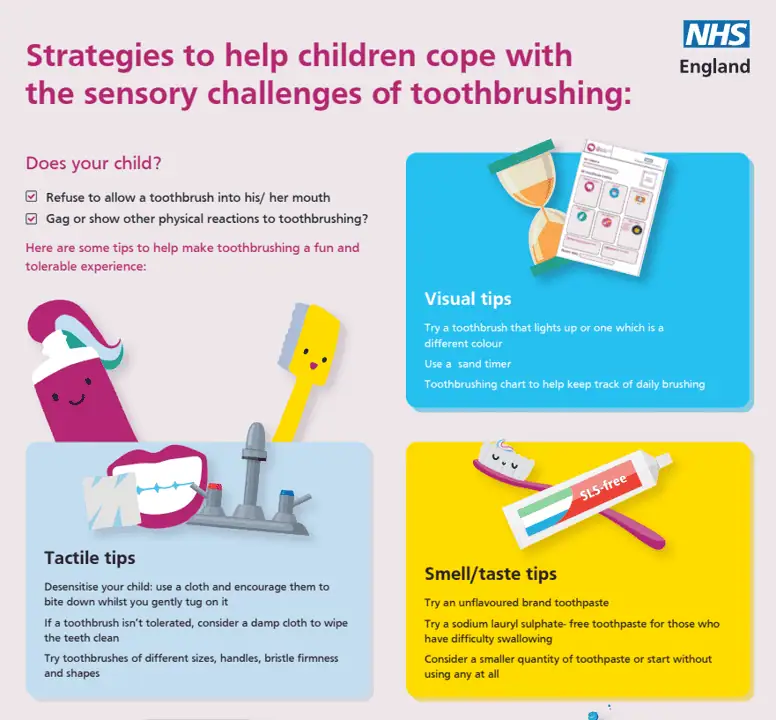
NHS England’s Mini Mouth Care Matters programmes has strategies to help children cope with the sensory challenges of toothbrushing. You can download the leaflet here.
The British Society of Paediatric Dentistry has produced guidance – Oral health advice for parents and carers of autistic children and young people which you may find helpful.
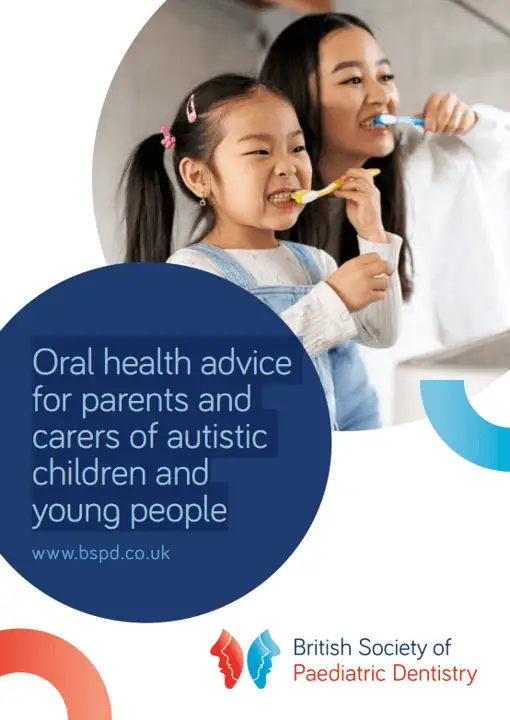
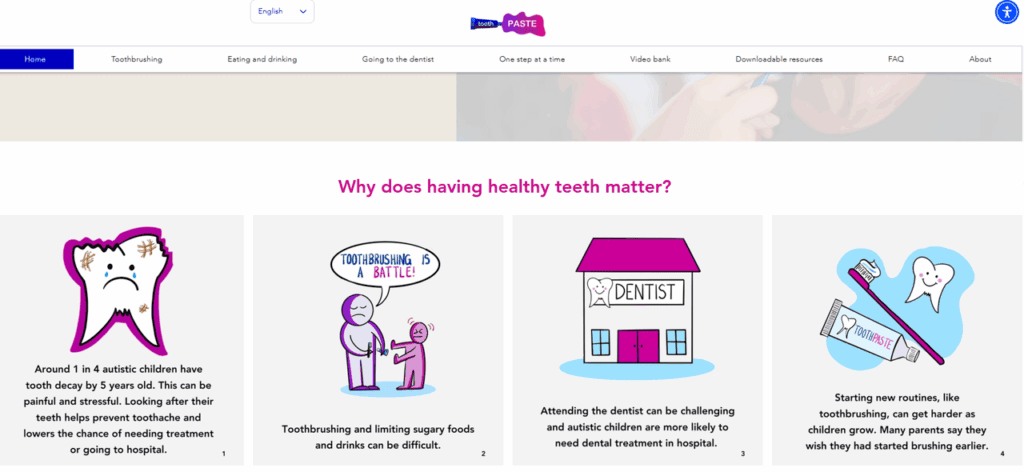
Some children e.g. children with autism / special educational needs (SEN) may need more help.
Visit ToothPASTE developed to support families of young autistic children care for their teeth. Created with families, professionals and researchers.
The website offers tips and advice on brushing teeth, visiting the dentist, and healthy eating and drinking for families of autistic children.
Diet and Nutrition – Mealtimes, Snacks and Drinks, Fussy eaters, Allergies
Diet and Nutrition
- Mealtimes, Snacks and Drinks
- Fussy eaters
- Allergies
Professional dental care – When, Why, Preventive therapy
Dental Visits
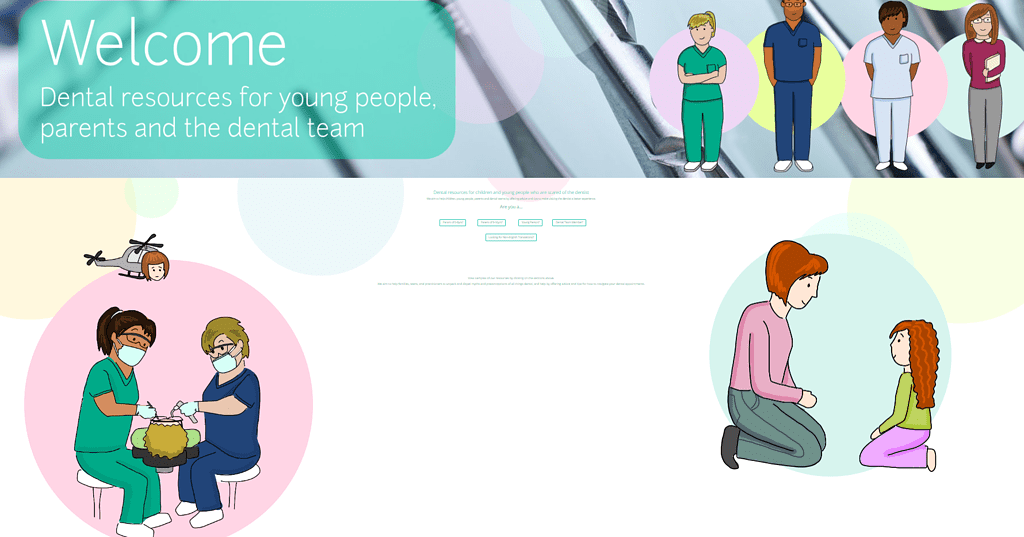
Worried about going to the dentist? We recommend visiting LLTTF which has advise and tips to make visiting the dentist a better experience.
Oral Hygiene – When, What to use, How to and Adult Supervision
Oral Health for Autistic Children and
those with sensory processing difficulties (SPDs)
A GUIDE FOR ADULTS has been produced by the Dental Health Foundation, Ireland with lots of useful tips. The booklet is designed to support parents and carers of autistic children in promoting good oral health. It offers
practical tips to help you establish a dental care routine that
suits your child’s unique needs.
The products recommended in the guide are available on the Growing Smiles online shop.
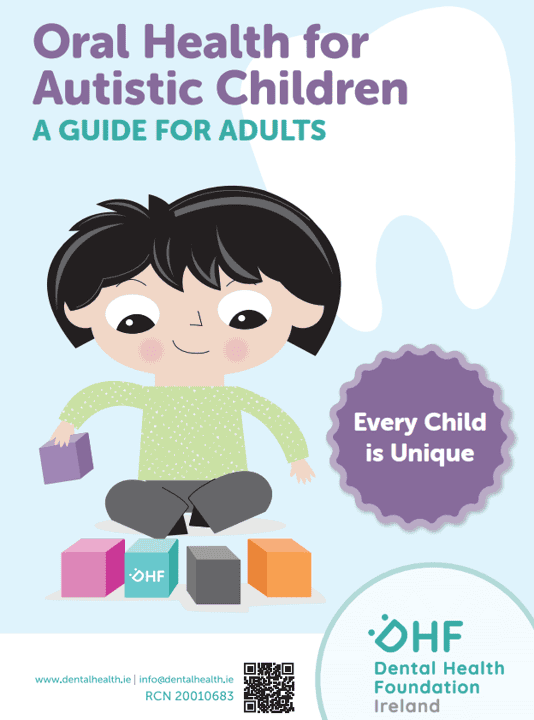
Special Educational Needs (SEN) Supervised toothbrushing.
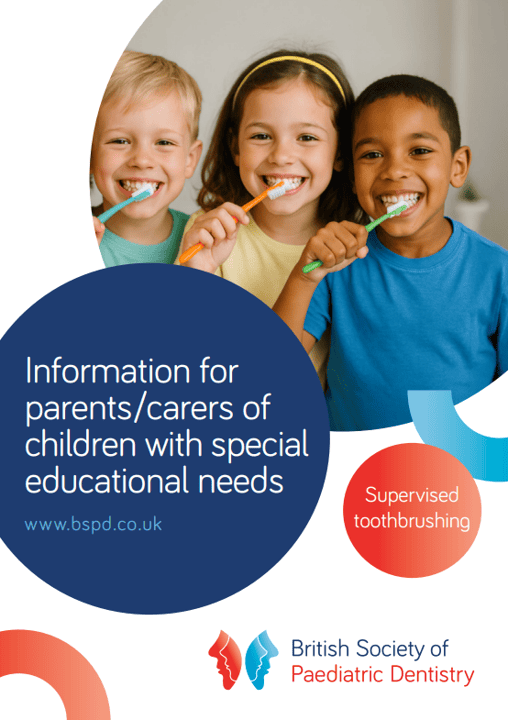
Is your school/nursery taking part in a supervised toothbrushing programme?
The British Society of Paediatric Dentistry has produced a leaflet to support parents and carers of children with special educational needs whose child is taking part in supervised toothbrushing.
